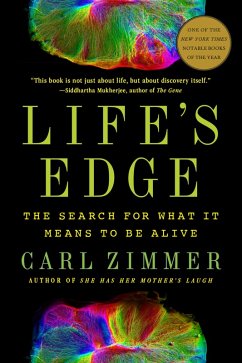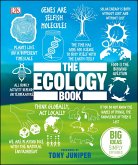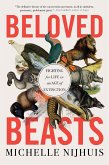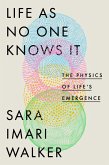"Carl Zimmer is one of the best science writers we have today." -Rebecca Skloot, author of The Immortal Life of Henrietta Lacks We all assume we know what life is, but the more scientists learn about the living world-from protocells to brains, from zygotes to pandemic viruses-the harder they find it is to locate life's edge. Carl Zimmer investigates one of the biggest questions of all: What is life? The answer seems obvious until you try to seriously answer it. Is the apple sitting on your kitchen counter alive, or is only the apple tree it came from deserving of the word? If we can't answer that question here on earth, how will we know when and if we discover alien life on other worlds? The question hangs over some of society's most charged conflicts-whether a fertilized egg is a living person, for example, and when we ought to declare a person legally dead. Life's Edge is an utterly fascinating investigation that no one but one of the most celebrated science writers of our generation could craft. Zimmer journeys through the strange experiments that have attempted to re-create life. Literally hundreds of definitions of what that should look like now exist, but none has yet emerged as an obvious winner. Lists of what living things have in common do not add up to a theory of life. It's never clear why some items on the list are essential and others not. Coronaviruses have altered the course of history, and yet many scientists maintain they are not alive. Chemists are creating droplets that can swarm, sense their environment, and multiply. Have they made life in the lab? Whether he is handling pythons in Alabama or searching for hibernating bats in the Adirondacks, Zimmer revels in astounding examples of life at its most bizarre. He tries his own hand at evolving life in a test tube with unnerving results. Charting the obsession with Dr. Frankenstein's monster and how Coleridge came to believe the whole universe was alive, Zimmer leads us all the way into the labs and minds of researchers working on engineering life from the ground up.
Dieser Download kann aus rechtlichen Gründen nur mit Rechnungsadresse in A, B, BG, CZ, D, DK, EW, E, FIN, F, GR, HR, H, I, LT, L, LR, NL, PL, P, R, S, SLO, SK ausgeliefert werden.









